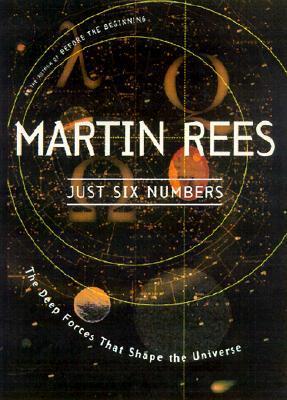
Just Six Numbers: The Deep Forces That Shape the Universe
Book Description
What if six seemingly simple numbers held the power to unveil the mysteries of our universe? In "Just Six Numbers," Martin J. Rees takes readers on a breathtaking journey through cosmic forces that shape existence itself. These numbers reveal why galaxies spin, why stars shine, and why life thrives on Earth. With each revelation, the scale of the universe expands, and the stakes rise. Touching on the very fabric of reality, this gripping exploration uncovers how intertwined physics and destiny truly are. Are these numbers the key to understanding our place in the cosmos, or merely a glimpse into an unfathomable enigma?
Quick Book Summary
"Just Six Numbers" by Martin J. Rees explores the cosmic significance of six fundamental constants that govern the universe's structure, evolution, and capacity to support life. Rees deftly explains how each number—a precise value set in the infancy of the cosmos—controls forces like gravity, nuclear reactions, and cosmic expansion. Their balance determines if galaxies, stars, and even life can exist. Drawing from physics, astronomy, and philosophical questioning, Rees invites readers to ponder whether these numbers are uniquely tuned or products of cosmic chance. The book offers a captivating inquiry into not just how the universe works, but why it permits complexity and consciousness to emerge, deeply linking science and human understanding of reality.
Summary of Key Ideas
Table of Contents
The Six Fundamental Numbers that Shape the Universe
Rees introduces the six crucial numbers: N (the ratio of the strength of gravity to electromagnetism), ε (the efficiency of nuclear fusion in stars), Ω (density parameter for the universe’s fate), Λ (cosmic repulsion or dark energy), Q (density ripples in the cosmos), and D (number of spatial dimensions). Each constant is explained in accessible language, showing its influence on the fabric and evolution of the universe. Their precise values, set during the universe’s earliest moments, make the difference between a lifeless void and a cosmic environment teeming with galaxies and life.
Fine-tuning and the Possibility of Life
Fine-tuning is at the core of Rees’s argument: if any one of these six numbers differed even slightly, the universe as we know it would not exist. Stars would sputter, galaxies wouldn’t form, and chemistry—let alone biology—would fail. This precise balance leads to an exploration of why the universe allows complexity. Rees discusses the anthropic principle, which suggests that we observe such a finely tuned universe because only such a place could foster observers like us.
Origins and Implications of Cosmic Laws
Rees delves into the origins of these cosmic numbers and laws. Are they inevitable byproducts of the universe’s birth, or arbitrary values that could differ across a hypothetical multiverse? He draws on advances in cosmology, quantum theory, and particle physics, contemplating whether deeper laws or chance alone govern these constants. The discussion includes the Big Bang, cosmic inflation, and the formation of cosmic structure, weaving in scientific uncertainties and current debates.
Limits of Scientific Understanding and the Anthropic Principle
Though science explains how these numbers work, their origin may remain forever elusive. Rees reflects on the limits of scientific explanation, emphasizing that some answers might be inaccessible, at least with present understanding. He discusses the anthropic principle’s strength and criticisms, highlighting its philosophical implications and engagement with questions traditionally reserved for theology and metaphysics.
The Universe: Randomness or Cosmic Design?
The book concludes with a meditation on whether the universe is the product of randomness or underlying order. If multiple universes exist—with their own variants of these six numbers—our existence becomes less mysterious, a matter of cosmic lottery. If not, the universe appears exquisitely “designed” for complexity, life, and consciousness. Rees refrains from definitive answers but emphasizes that, regardless, these six numbers are central to understanding our extraordinary place in the cosmos.
Download This Summary
Get a free PDF of this summary instantly — no email required.





